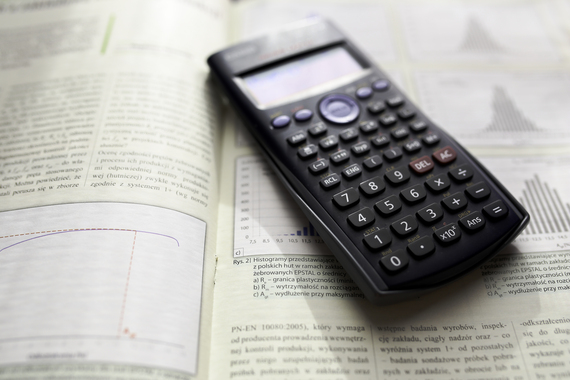An article from earlier this year, "In Defense of Being Average," continues to buzz and bounce around the Internet, promoting the average-ness in us all and, at the same time, decrying the "tyranny of exceptionalism."
I personally don't buy into the notion that exceptionalism is bad. I think that every human being has the potential to be exceptional in some way. It takes time, effort and some luck for a person to have the discipline, self-awareness, and environmental/familial support to be able to discover what their potential is and to develop it.
But let's not leave it to opinion. To me, this is a math problem.
Let's say that on any given dimension for being exceptional, that the population is spread out this way:
- 10% truly exceptional
- 80% average
- 10% really not exceptional
If there were only one way to be exceptional -- let's say, being "really tall" -- then the 10/80/10 distribution would exactly dictate your chances of being exceptionally tall. But there isn't just one way to be exceptional in this world! If there are two ways of being exceptional, say "tall" and "smart", then the likelihood of any one person being just "average tall-ness" and "average smart-ness" would be 0.80-squared (64%). If there are three ways of being exceptional, then the likelihood of a person being average in all three dimensions drops to 0.80^3 (about half or 51%). If we can think of 20 different ways to be exceptional, then the likelihood of a person being "average" in all 20 different dimensions comes down to 0.80^20 or around 1%. And if, as I think is truly the case, there are thousands and thousands (if not infinite) ways to be exceptional, then the likelihood of anyone being just "average" on every dimension basically goes to 0%.
I think the beauty of this argument is that the thing we dread -- the distribution curve that defines who is "exceptional" or not -- is the very thing that guarantees everyone is exceptional on at least one dimension. I.e., the property of the distribution curve that puts less than 100% of people in any one category is exactly the fact that makes it so that each person's probability of being "non-exceptional" in *every* way is zero. Because anything less than 100% to a large power is zero.
Math FTW. Go forth and find your exceptional super power!
P.S., I completely and totally acknowledge that the *potential* for exceptionalism isn't the same as actually realizing that potential. That is one of the great frustrations and challenges of modern human life -- that not everyone is born into a situation with the support, time, and resources to be able to develop and explore their full potential. More on that in a future post.
P.P.S., if you can't think of at least 50 different ways to be exceptional, then try harder.
